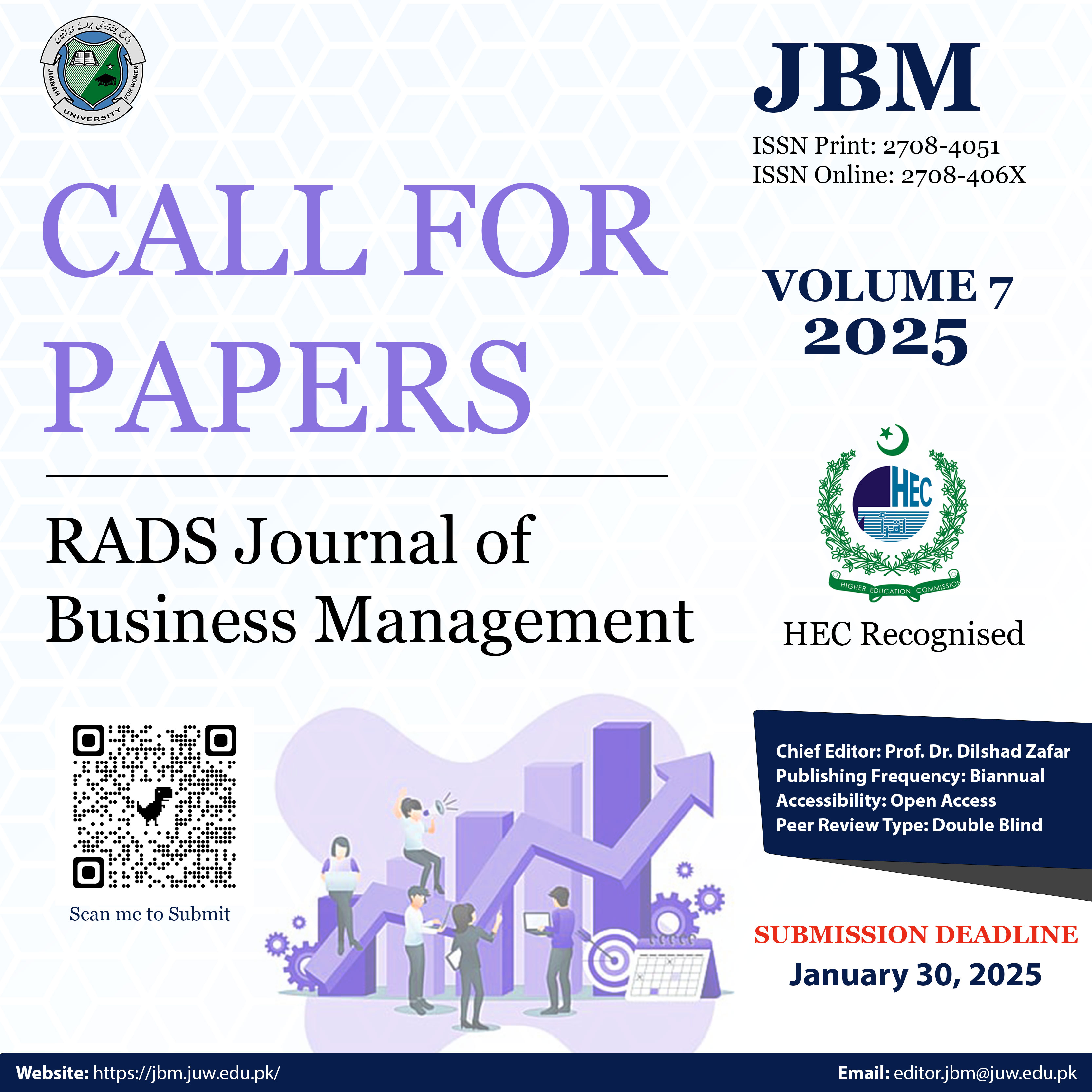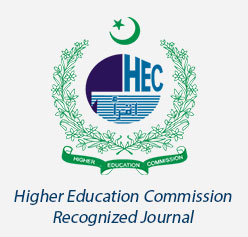Impact of Ethical Leadership on Green Creativity and Pro-Environmental Behaviour using GHRM Practices as a Mechanism; Moderated by Harmonious Passion
Abstract
Purpose: Green Human Resource Practices have gained momentum in the 21st century. The type of leadership has emerged to be one of the pertinent factors impacting the implementation of these practices. The aim of the current research is to analyze the impact that ethical leadership style has in implementing GHRM practices, its impact on employees’ green creativity and pro-environmental behavior through GHRM practices and to explore the role of harmonious environmental passion as a moderator between ethical leadership and GHRM.
Methodology: Data for inference has been collected from 306 employees providing their professional services in the hospitality industry in Pakistan in a three-phased field study. In order to explore the relationships among the study variables, Hierarchical regression analyses were carried out.
Findings: The results of the current study indicate that GHRM is positively and significantly predicted by ethical leadership. Moreover, the results further suggest that ethical leadership, which promotes GHRM practices in an organization, can enhance green creativity and pro-environment behavior. Finally, the results confirm that harmonious environment passion moderates the relationship between ethical leadership and GHRM practices, which signifies that if an employee possesses high harmonious passion for environment and has ethical leadership in an organization, the effectiveness and usage of GHRM practices increases.
Originality/Value: This paper focused on ethical leadership and its impact on GHRM practices in the context of a developing country like Pakistan. Previous researches have mostly focused on other leadership styles such as transformational leadership etc. Also, this is the first study to consider the impact of harmonious environmental passion on the link between ethical leadership and GHRM practices.
Originality/Value: This paper focused on ethical leadership and its impact on GHRM practices in the context of a developing country like Pakistan. Previous research has mostly focused on other leadership styles, such as transformational leadership, etc. Also, this is the first study to consider the impact of harmonious environmental passion on the link between ethical leadership and GHRM practices.
The author retains the copyright and grants the right of first publication to the journal.





